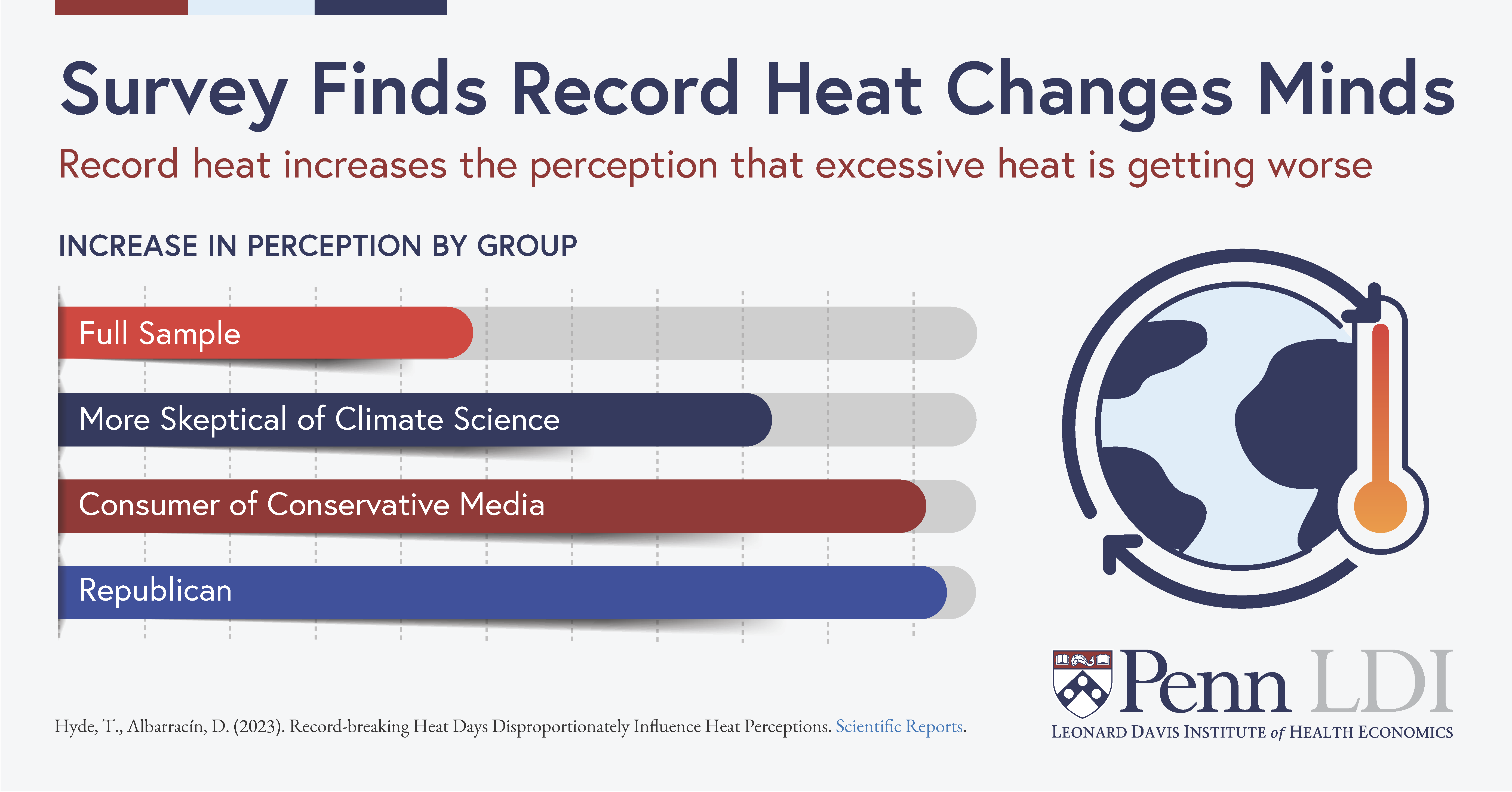
One Agency’s Maps Are Known For Documenting Redlining
But Many Other Factors Played a Role in Denying Loans, LDI Fellow Says
Population Health
Blog Post

2023 was the hottest recorded year on Earth. Despite the scientific evidence, public perceptions of climate change are more complex to understand. Recent research by LDI Senior Fellow Dolores Albarracín and colleague Timothy Hyde sheds light on a new factor in understanding how people think of climate change: exposure to record-breaking heat. The study “Record-Breaking Heat Days Disproportionately Influence Heat Perceptions,” reveals that extreme heat events significantly raise perceptions of excessive heat in the United States. This indicates the importance of media coverage and effective communication strategies in changing opinions related to complex weather patterns. As shown in the graphic, high temperatures have the most dramatic impact on the perceptions of those who are more skeptical of climate science, consumers of conservative media, and Republicans.
Albarracín and colleagues urge the importance of customized communication strategies to effectively communicate the urgency and reality of climate change—bridging the gap between unprecedented temperatures and public comprehension.
The study, “Record-Breaking Heat Days Disproportionately Influence Heat Perceptions,” was published on October 9, 2023 in Scientific Reports. Authors include Timothy Hyde and Dolores Albarracín.


But Many Other Factors Played a Role in Denying Loans, LDI Fellow Says

Offit and Buttenheim Criticize HHS Placebo Trial Mandate as Unethical, Misleading, and a Threat to Vaccine Confidence

A Penn LDI Virtual Seminar Explores the Latest Trends in Anchor Institution Operations

Neighborhood Perceptions May Also Affect PTSD and Depression Recovery After Serious Injury

A Penn LDI and Opportunity for Health Lab Virtual Seminar Explores Economic Assistance Programs

Testimony: Delivered to Philadelphia City Council